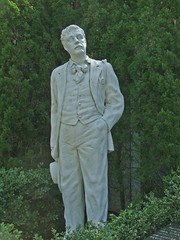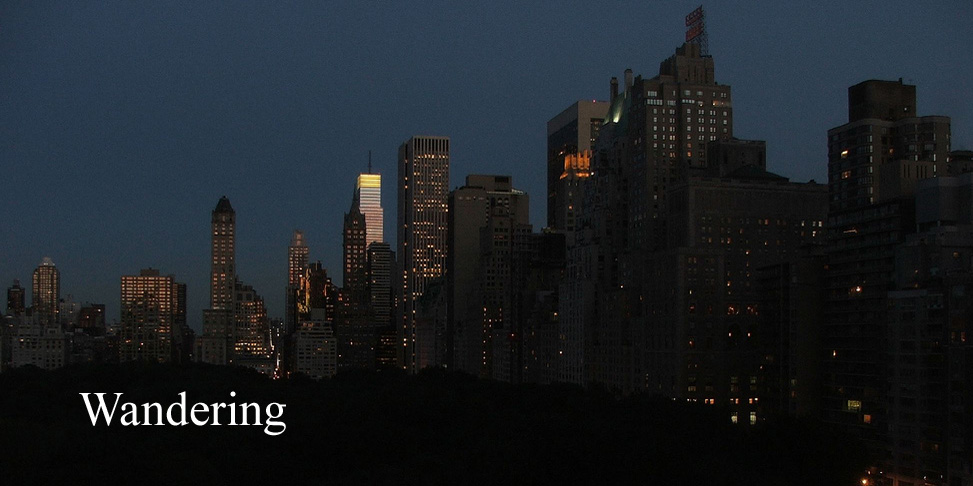
Puccini
My life in the opera audience began in about 1952 with Puccini’s Tosca.
Il trittico was the only one of his major works that I had not seen: why this should be so is a mystery since the production revived this year by Opera Australia is the oldest in the company’s repertoire. It was first seen in 1973. Last year I saw one of the three – Gianni Schicci at the Washington National Opera.
Il Trittico (The triptych) as its name suggests three short operas performed together. They are Il Tabarro (The Cloak) http://en.wikipedia.org/wiki/Il_tabarro , Sour Angelica http://en.wikipedia.org/wiki/Suor_Angelica and Gianni Schicchi http://en.wikipedia.org/wiki/Gianni_Schicchi .
The operas were first performed at the Met in New York in 1918. Since then they seem to have suffered a mixed fate and have been performed in various combinations, sometimes with operas by other composers. When I saw Gianni Schicchi in Washington it followed Bartok’s Bluebeard’s Castle. Suor Angelica has been least popular. In my edition of Kobbe’s Opera Book, Lord Harwood dismisses it in three short paragraphs which is less that a quarter of the space allocated the other two. He says it has never been popular.
I think that Il Trittico is best thought of as whole, a work in three movements with a dramatic opening. a contemplative middle section and a lively finale. If Suor Angelica were omitted this structure would be lost. But I also disagree with the writer of OA’s program note when she says that Gianni Schicci has been performed with some “frankly strange” partners, such as Bluebeard’s Castle. When I saw Gianni Schicchi in Washington it followed Bluebeard’s Castle and the combination worked very well. The comedy was a release from the tension of Bartok’s dark and tense opera, an effect which was enhanced by the witty use of production elements from Bluebeard in the Puccini.
Puccini’s music is very distinctive but within the orchestral sound he creates each of the three pieces is quite different. The music of Il Tabarro has been described as like an impressionist painting in sound and this is a good description particularly of the passages which set the scene at the outset. There is some evidence that Puccini saw the creation of the atmosphere of Paris and the Seine as more important than the melodrama which develops within it. As originally written Michele’s aria sung after his exchange with Giorgetta began:
Rush on, never ending river,
How deep is your mystery!
The aria was replaced in 1923 with one that begins –
Nulla! Silenzio. (Nothing! Silence.)
….
There she is!
She isn’t undressing or sleeping…….
In both Il Tabarro and Gianni Schicchi Puccini gives his characters very specific ages, in Gianni Schicchi these seem appropriate enough but the love triangle in Il Tabarro is unusual. Michele, the husband is 45 and Giorgetta his wife 25; but Luigi, Giorgetta’s lover is 20. If Giorgetta seduced a boy working for her husband it would make Michele’s denunciation of her “Sgualdrina”, expressed with wonderful intensity by Jonathan Summers, very accurate. The difficulty is that Denis O’Neill could never look like a young man of 20 and neither could any other tenor who could take the part; even Carlo Barricelli who replaced Denis O’Neill in later performances. And the words given to him do not sound like those of a youth either.
The exchange between Michele and Giorgetta in which Michele reminisces about their past love includes references to their dead baby with which he continues despite Giorgetta’s pleas. Is this intended to expose a cruelty in him which might explain his murder of Luigi?
The answer to this kind of question is probably not to look past the first impressions made by the characters and to rely on the music.
The popularity of Puccini operas may work against them as it can be said they often wallow in sentimentality. This is true in a way, but it is not everything. Even the well known climatic moments are rarely overdone. Some of the most popular arias are actually very short. There are moments like the duet of the two lovers before Michele’s final aria in Il Tabarro, just 45 seconds to make the contrast with the difficult relationship of Giorgetta and Michele. There are instrumental solos too, often very short but often of great beauty, which add to the richness and depth of the score.
There are times when the music seems to run against the text. I noticed two examples in Il Trittico because the music is very familiar but I had never really noticed the words. In Il Tabarro there is an intense duet between Luigi and Giorgetta which I had always heard as an expression of the intensity of their love: but the text concerns their common delight in the Parisian suburb of Bellevue. The subtlety is that music is saying something altogether more personal. Wagner is famous for this kind of thing but Puccini does not seem to be given credit for it.
The limits of the opera theatre pit are very evident at this point as the crescendo in the brass which is so prominent in recordings is muted; but we are left with a beautifully executed velvety passage which builds up to it. The loss of one aspect of the music enhances another.
The same point can be made about the most famous aria in the piece “O mio babbino caro” from Gianni Schicchi. I have always heard this as an expression of love and affection from an admiring daughter to her father; and I have no doubt the music says this. The text is a plea to Gianni Schicchi to help the aristocrats he despises overturn a will which fails to benefit them, and, in turn create a situation in which Lauretta can marry. the music of “O mio babbino caro” appears as a motif a couple of times before the aria, first in Rinuccio’s aria in praise of the city of Florence and its maturity in accepting other cultures. There may be something going on here which I have missed: or maybe the motif appears just so it is associated with both the lovers.
I have never heard Jonathan Summers better than as Michele in Il Tabarro; a fine performance. His Gianni Schicchi was also good but Michele was outstanding. Samuel Ramey as Gianni Schicchi in Washington left a more powerful impression.
Denis O’Neill is a singer who seems always so much in control of himself and his voice and unwilling to take risks that his excellent and reliable performances lack the emotion and feeling of a tenor who takes risks. In Il Tabarro, perhaps because it is a short work, he gave a little more than usual perhaps.
Carlo Barricelli’s Luigi sang with Italianate flair, but from where I was sitting sounded a little weak in his duet with Nicole Youl’s Giorgetta which lacked balance.
Cheryl Barker gave a fine performance of the three soprano roles. Due to illness, she was replaced by Nicole Youl in the radio broadcast of the first two operas and in Il Tabarro in the final performance I saw. There was little to choose between them.
I have discovered a CD of the opera’s in which Chilean soprano Christina Gallardo Domas (seen as Madame Butterfly at the Met) sings Sister Angelica. The unusual timbre of her voice brings a real sense of vulnerability to her characterisation of Angelica.
OPERA AUSTRALIA
Il trittico
Seen 31 August, 12 and 26 September 2007.
Radio broadcast 22 September 2007.
.





1 comment:
Not much discussion of Suor Angelica here either!
Here is my attempt (aimed at a different audience perhaps):
Il Trittico.
Puccini’s Il Trittico is made up of three short operas performed together - a romantic tragedy, a story of divine forgiveness and a comedy - all united by the common theme of death. Cheryl Barker plays all three main female roles with aplomb, while the other roles are distributed among a large cast of notable Opera Australia artists.
In the first opera, Il tabarro, Giorgetta (Barker) is married to a barge owner, but in love with one of his workmen, Luigi. She and Luigi make elaborate plans to meet one evening, but fate intervenes, and it is her husband instead who greets Luigi with a deathly embrace.
After the excitement of ‘Darling, I strangled your secret lover and hid his body underneath my creepy cloak’, the second opera, Suor Angelica, provides a brief reprieve, albeit somewhat confusing and nun-filled. The opera begins with a group of sisters meeting to gossip about their most sinful desires. As far as naughty nuns go, these ladies are a little disappointing. One has been hiding flowers in her sleeves and another longs to hug a baby lamb (and maybe then eat it, I’m not sure - they sing about gluttony quite a bit.)
Luckily Sister Angelica is a more colourful character. The daughter of nobility, she was forced to take her vows after bearing an illegitimate child and has been isolated from all news of her family until the foreboding visit of her Aunt. The news she receives is not good. While Suor Angelica has many very fine female roles, the plot is slightly impenetrable for audience members not interested in holy redemption and the music has fewer vivid harmonies than Il tabarro.
Gianni Schicchi is the final opera of the three, and is not only musically significant but also undeniably funny. Schicchi (Jonathan Summers) is recruited by his daughter’s noble boyfriend, Rinuccio, to impersonate a crotchety, recently deceased relative of the family in order to falsify his will. Schicchi generally causes mischief, stealing a good deal of the old man’s wealth for himself and his manipulative daughter (Barker).
The great thing about Il trittico is that a lot of different ideas are packed into the three stand-alone acts, but all the pieces are held together nicely by the beauty of Puccini’s score.
Post a Comment